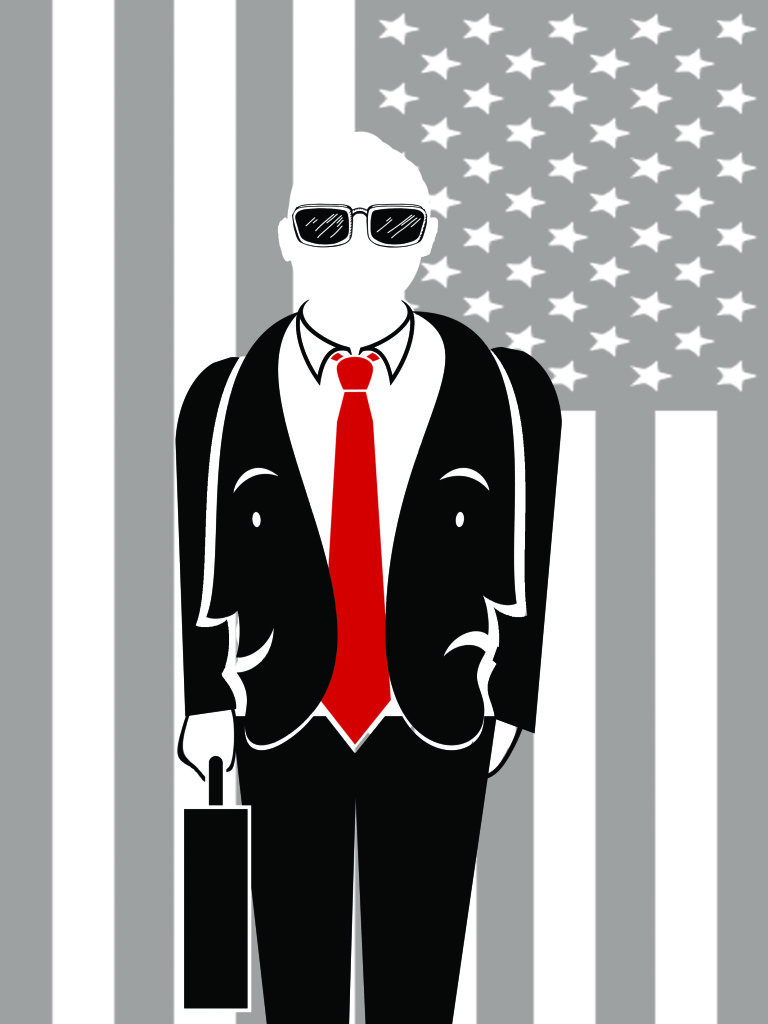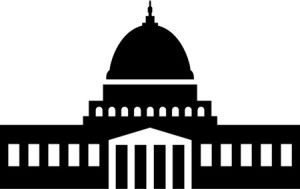Government: Friend or Foe?

Examining the government’s potential effect on the alternative business lending industry
It would be excusable for alternative business lenders to have mixed emotions when thinking about the federal government.
On the one hand, federal officials are encouraging alternative business lenders to use free data resources to innovate new lending products and encourage the flow of capital to cash-starved businesses.
But on another hand, some funders are watching skeptically as other federal agencies “choke off” funding to short-term consumer lenders that critics say are operating predatory businesses. Skeptics worry that if officials are willing to shut down ostensibly legal consumer products, alternative business funders may be next.
Still others feel that if the industry keeps its nose clean, then there can continue to be opportunities amid the uncertainty of working with the feds.
Data advocates
During the Lendit 2014 conference in San Francisco, a Treasury Department official offered a decidedly positive message regarding business financing.
During her presentation, Sophie Raseman, director of smart disclosure at Treasury, emphasized that she is excited about the opportunities that exist to use government open data resources to inform small business lending decisions.
“We think right now is a very promising time to tap into open data resources to better serve the small business segment,” she said.
She called on the lending community to look at the resources being made available through the government’s new data policy, which says that all newly generated data sets at the federal level will be made open and available to the public as the default.
One example she gave for how business lenders could use open government data was to use the economic trend data regularly released by different agencies to better fine tune forecast models for business segments.
Another example was to use data from the Department of Labor’s reports about retirement plans to verify company information, such as the number of employees.
She said another key initiative being pushed at the federal level was to allow borrowers to capture data about them that has been reported to various government agencies, and to use that data to help streamline application processes for loans.
“We are looking for where entities are already reporting data, and then giving the borrowers the ability to securely and safely send that data to the lender,” Raseman said.
Raseman said the key, from her perspective, was to ensure that government open data was being used to facilitate innovations and to get capital flowing to small businesses.
“I don’t have to tell you that small businesses are at the heart of the U.S. economy and too often they face constraints in the capital they need to grow their businesses,” Raseman said. “We want to call on folks like you to take a look at the resources, the data assets we are already publishing to see how you can use those data sets to garner new insights, to build better models, to come up with new ideas to better serve that segment.”
Operation Choke Point
Perhaps the other perspective of government involvement in the lending industry can be found in the Justice Department’s “Operation Choke Point.”
“Choke Point is part of the Department of Justice’s Financial Fraud Enforcement Task Force,” said Allyson Baker a partner at Washington-based law firm Venable LLP. Baker also previously worked as an enforcement attorney at the Consumer Financial Protection Bureau.
The program’s stated goal is to root out fraud and illegal transactions in consumer lending. The Justice Department says its efforts are directly targeting fraudulent players within the financial services industry, but it is also going after the financial services companies that help those allegedly fraudulent companies operate, including banks and payment processing firms.
One of the most prominent cases coming out of Operation Choke Point is Four Oaks Bank in North Carolina. In that case, DOJ accused the bank of ignoring fraudulent activity done by its customers, while profiting from the fees generated by their actions.
Justice officials sued Four Oaks and accused the bank of allowing online-based subprime lenders to extend payday loans to customers who lived in states where those loans were illegal.
Four Oaks settled with federal prosecutors in January for more than $1 million.
This emphasis on banks, and not just allegedly fraudulent players, is where this program gets its name – by “choking off” the flow of funds to entire industries, which will then whither and die.
Insiders say Operation Choke Point grew out of, among other things, a portion of the Federal Deposit Insurance Corp’s Compliance Manual updated in December 2012. That manual says banks are responsible for activities conducted by third-party partners engaged by those banks “to the same extent as if the activity were handled within the institution.”
The manual goes on to say that responsibility for those potentially fraudulent activities flowed through the bank directly to its board of directors and managers.
And, perhaps most telling, the manual identifies as risky several industries, including many that are legal but that introduce potential “reputational risk” for the bank. It specifically identifies subprime lending programs, subprime credit card programs, refund anticipation loans, payday lending and “other alternative credit programs.”
The manual warns that if banks do not properly manage risks provided by those partners, it may lead to “supervisory action, financial loss, litigation, and reputational damage.”
Peter Barden, director of communication for the Alexandria, Virginia-based Online Lenders Alliance said Operation Choke Point has hit his organization’s members particularly hard. Many of the alliance’s members include consumer lenders who cater to under-banked communities.
“FDIC examiners were coming into banks that were working with online lending members, and started asking them questions about those online lender clients,” Barden said. “They were telling the banks that they might want to get out of this space or ‘we would have to place a little extra scrutiny on you.’”
Banks ‘just bail’
Because banks tend to be risk averse, many saw those visits as a signal to just exit that lending sector entirely, said Scott Talbott, senior vice president of government affairs for the Washington-based Electronic Transactions Association.
“Banks are seeing the lists of so-called risky businesses, and they are terminating long-standing relationships with legal entities,” Talbott said. “It really is throwing the baby out with the bath water.”
Baker said that one of the most interesting aspects of Operation Choke Point is the mechanism federal officials are using to target the merchants.
“This is a law enforcement action, not regulatory,” she said. “They are doing this through the threat of court action.”
All online lenders are feeling the pinch, even ones who are playing by the rules and following every federal, state and local regulation governing so-called payday loans, Barden said.
“Our concern is that this is an attempt to shut down an entire industry, not just target the rogue elements or bad apples,” Barden said.
He said that all short-term lenders are getting the increased scrutiny from federal prosecutors and from their banks, even ones who are processing transactions through the ACH network that were expressly approved by the customer – transactions that he said were clearly not fraudulent.
The most disconcerting part of Operation Choke Point, according to its critics, is that it now appears to be moving beyond fraudulent lending and into other legal industries that are seen by government officials as unsavory. And they are doing it under the guise of mitigating that “reputational risk” to the banks.
Already there are anecdotal reports from across the country that banks serving industries ranging from porn stars to online firearm and ammunition retailers are getting visits from federal agents who are discouraging them to drop these clients.

Congressional involvement
Not everyone in the government supports the actions of Operation Choke Point, however. Many members of congress, including U.S. Rep. Blaine Luetkemeyer, R-Missouri, are speaking out publicly against the program.
In April, Luetkemeyer wrote a column addressing Operation Choke Point in scathing detail and ardently supported the efforts of companies trying to make credit more readily available.
“Earlier this year I learned about this operation, in which the Federal Deposit Insurance Corporation loaned investigators to the Justice Department in a hostile attempt to take down nondepository lenders they believe have no moral right to exist,” Luetkemeyer wrote. He went on to write, “Consider that for a moment: we aren’t talking about businesses that are breaking laws. We are talking about businesses operating legally, yet our government believes it has the moral authority to try and shutter an entire portion of the private sector which is playing by the rules based on a moral assessment made by federal bureaucrats and political appointees.”
Luetkemeyer and 30 other members of Congress signed on to a letter dated Aug. 22, 2013 and addressed to Attorney General Eric Holder and Martin Gruenberg, chairman of the FDIC.
That letter points out that Operation Choke Point’s efforts to stop banks from processing what they pointed out were lawful transactions would cause major harm to entire sectors of the economy and strip a “vital lending option” from millions of low-income families.
Other members of Congress, however, have a more favorable take on the Justice Department’s efforts. In a letter dated Feb. 26, 2014 to Attorney General Holder signed by 12 members of Congress, the authors supported the DOJ efforts, especially when it comes to fraudulent and illegal activities.
“We urge the Department to enforce vigorously applicable laws pertaining to payment fraud, money-laundering, and other illegal payments,” the letter says.

Moving forward
The lesson many people seem to be taking from Operation Choke Point is one of fear.
“We don’t know which industry is next,” Talbott said.
But Baker said that lenders focused on business-to-business transactions might not have as much to fear from Operation Choke Point than consumer-based industries might.
“Right now they seem specifically interested in consumer finance and products aimed at consumers,” she said.
Baker said that when it comes to federal regulation of business lenders, it is likely the Federal Trade Commission that has jurisdiction, and that business lending is in a different jurisdiction from consumer lending. She said that one of the key triggers for the Choke Point investigators is a high chargeback rate on transactions – something that non-consumer lenders likely didn’t have to deal with as often.
And presuming fraud truly is the focus of Choke Point, then legally operating players in the alternative business lending space likely have little to fear from federal oversight, but instead might find great opportunity in the data resources being released.
Go to: Previous page | Next page
Go to: | 1 | 2 | 3 | 4 | 5 | 6 | 7 | 8 | 9 | 10 | 11 | 12 | 13 | 14 | 15 | 16 | 17 | 18 | 19 | 20 | 21 | 22



